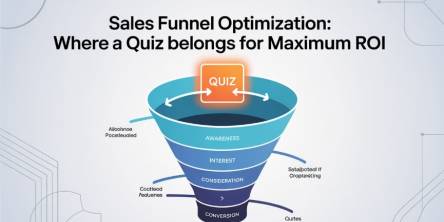How Big Data is Transforming Healthcare

The modern healthcare industry is undergoing a significant transformation. The models of healthcare that we are used to thus far are now making way for a more data driven approach. Unsurprisingly, this evolution is being driven by a variety of factors. The list includes the need to improve patient outcomes and operational efficiency to name a few. Healthcare providers and research institutions are currently generating and collecting massive amounts of data from a variety of sources. This includes electronic health records and even social media to list a few sources. The obvious next step for healthcare organizations then is to not just collect data. They must also find effective ways to manage and extract meaningful insights from it. This is where big data and its advanced analytical capabilities come into play.
In this blog, I will discuss some of the most compelling benefits of big data for this sector. This will help you understand why you need to on-board a trusted software development company.
Big Data for Healthcare: A Quick Overview with Stats
- The global healthcare analytics market is projected to reach $167 billion by 2030
- The healthcare industry is estimated to generate approximately 30% of global data volume
- Experts believe big data analytics could save the US healthcare industry up to $300 billion per year
Healthcare + Big Data: Top Benefits the Sector Can't Ignore
Big Data is revolutionizing the delivery, management, and optimization of patient care in the quickly changing healthcare sector. Providers can improve decision-making, expedite processes, and deliver individualized treatment plans by utilizing enormous volumes of health-related data. Big Data gives healthcare professionals the ability to make data-driven decisions that improve operational performance, cost effectiveness, and care quality through predictive analytics and better patient outcomes. The healthcare industry can no longer afford to overlook this game-changer.
Let’s discuss some of the key benefits;
- Personalized treatment plans: Big data allows healthcare providers to deliver individualized treatment by analyzing various patient specific data points. This goes beyond simple medical history. Think of factors such as genetic information and lifestyle choices. A growing number of doctors are analyzing patients' genes data to predict how they will react to a particular medication. This way doctors can prescribe the most effective treatment with the fewest side effects. Data from wearable devices can also provide continuous information on a patient's well-being. Such insights are being increasingly used to adapt treatment plans for patients worldwide.
- Predict disease outbreaks: There is simply no denying that a boat load of data is being generated. What some may not realize is that data gathered from multiple sources can be put to work to foretell the outbreak of diseases. Imagine there is a sudden increase in online searches for flu symptoms in your neighborhood. A cause of worry, wouldn’t it not be? Anyway, health officials could use this information to send resources, such as vaccines or medical supplies, to affected areas. And more quickly at that. As you can imagine, such actions can potentially contain the outbreak and avert a larger public health crisis.
- Population health management: Big data analytics help in this context by aggregating and analyzing data from the entire population. Being able to understand a population's common health challenges is vital because healthcare providers can use this to design targeted intervention programs. This could include community health screenings and educational workshops among countless other things.
- Better operational efficiency: Everybody could do with big data to improve their daily operations. This holds true for healthcare organizations as well. Hospitals and clinics can identify and eliminate bottlenecks by analyzing patient flow and resource utilization data. Here is a demonstration: hospitals can data analytics to work to predict patient admission rates at various times of the day or week. Analyzing data on medical equipment usage and maintenance schedules can make sure that critical machines are always in good working order.
Final Words
The immense potential of big data for healthcare. Now, you need to start looking for an expert big data services company to kick start your project.
Similar Articles
We live in the age of cloud computing. That's plain to see. However, what may escape many are the operational and financial challenges of managing multiple independent clusters.
Times have changed and how! Take modern technology and the fast-paced digital economy, it is driving. Given the market conditions, any company's infrastructure has become more than just a technical detail.
It has been for everyone to see that the modern digital economy is distinguished by high volume, real-time financial transactions.
Business success has become reliant on efficiency and agility of the underlying technology infrastructure. Clearly, companies now depend on cloud computing to provide seamless services while managing exponential data growth.
Hospitals operate in environments where availability and patient safety are paramount at all times. As medical supply chains expand and regulatory oversight becomes more demanding, manual tracking methods introduce delays and risk.
Every sales funnel has one core goal: turn attention into revenue as efficiently as possible. Yet many funnels leak value at critical stages—visitors bounce, leads go cold, and sales teams chase prospects who were never a good fit.
Decentralized Finance (DeFi) has transformed how users earn passive income through blockchain-based financial systems. Among its most popular use cases,
Staying organized can feel like a full-time job. Between meetings, deadlines, and personal commitments, it’s easy to get overwhelmed.
Choosing the right GIS mapping software depends on what you need to accomplish. Some platforms cater to developers who want to build custom applications from scratch.









